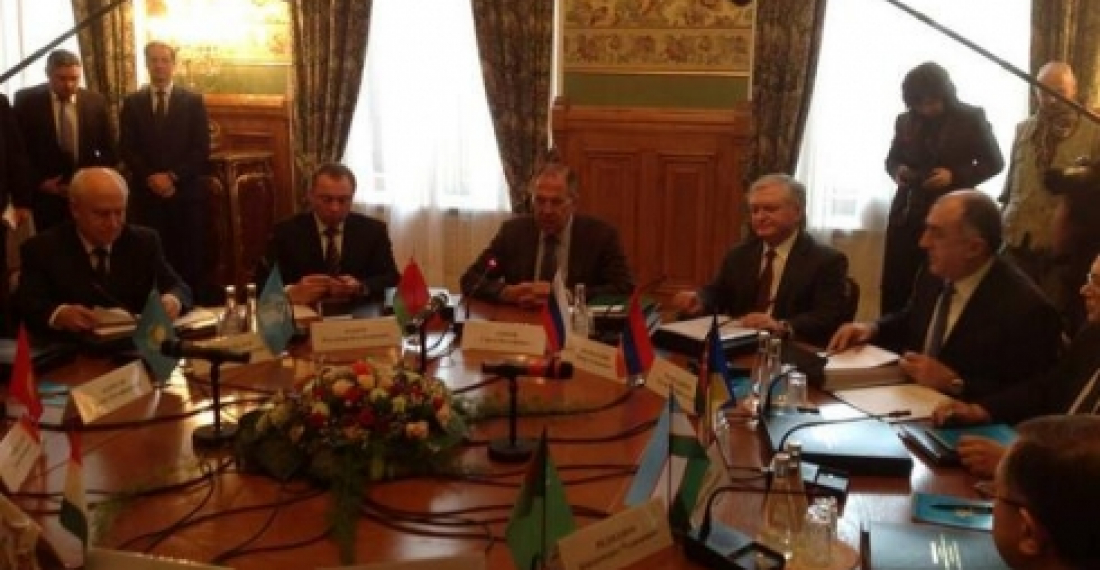The Foreign Ministers of the Commonwealth of Independent States met in Moscow on Friday - their first meeting since the crisis in Ukraine. During the meeting it was decided that Belarus should have the Chairmanship of the organisation for the rest of 2014 after Ukraine renounced its chairmanship following the Russian annexation of Crimea. It was also agreed that a meeting of CIS heads of government will take place in Minsk on 30th May, and a summit of heads of state some time in the Autumn.
Press reports suggest that the situation in Ukraine was discussed during the meeting but that no statement on the situation was agreed. Ukraine was not represented in the meeting at Ministerial level, but by diplomats from its embassy in Moscow. The Belursussian News Agency BELTA said that the Belarus Foreign Minister Vladimir Makel told journalists that the meeting focused on issues of foreign political cooperation in the CIS. In particular, the participants of the meeting discussed the progress made in the implementation of the CIS plan of multi-level ministerial consultations in 2013 and adopted a plan of similar consultations for 2014. The document envisages consultations on cooperation on various international platforms on a wide range of issues of the current agenda.
According to Vladimir Makei, the ministers approved the draft decisions by the heads of state to declare 2016 the Year of Education in the CIS, and a program to support and develop national sports in the CIS.
The CIS Foreign Ministers Council also adopted the decisions regarding to cooperation in the liquidation of the consequences of natural and man-made emergencies, the CIS assistance to Tajikistan in strengthening border security on the Tajik-Afghan border.
source: commonspace.eu
photo: A meeting of the CIS Foreign Ministers in Moscow on 4 April 2014 (picture courtesy of the Russian Foreign Ministry).







